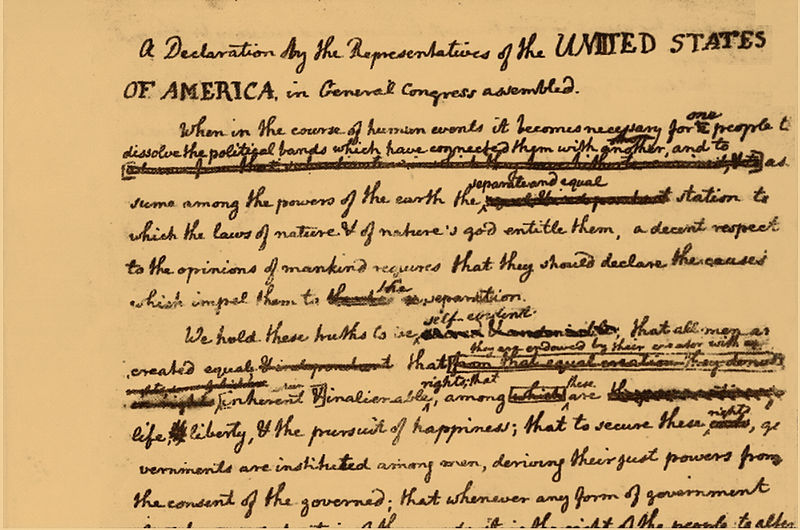Here is the final draft of my
public argument. Question 2 is different for mine because of the approach I took at the end. I want people to understand that alternatives to animal testing are not ready to replace but I urge the development of alternatives in the end. So my argument doesn't aim to make people change sides of the argument but rather accept reality and do what they can to change it.
1. Mark with an "x" where you feel your target audience currently stands on the issue (before reading/watcing/hearing your argument) below:
←----------------------------------------------------|-----------------------------x--------------------------->
Strongly Totally neutral Strongly
for testing against testing
2. Now mark with an "x" where you feel your target audience should be (after they've read/watched/heard your argument) below:
←-------------------------------------------x--------|--------------------------------------------------------->
Strongly Totally neutral Strongly
for testing against testing
3. Check one (and only one) of the argument types below for your public argument:
_______ My public argument etablishes an original pro position on an issue of debate.
_______ My public argument establishes an original con position on an issue of debate.
_______ My public argument clarifies the causes for a problem that is being debated.
_______ My public argument prooposes a solution for a problem that is being debated.
_______ My public argument positively evaluate a specific solution or policy under debate (and clearly identifies the idea I'm supporting).
___x___ My public argument openly refutes a specific solution or policy under debate (and clearly identifies the idea I'm refuting).
4. Briefly explain how your public argument doesn’t simply restate information from other sources, but provides original context and insight into the situation:
I refute the point that alternatives to animal testing should replace testing using sources. This isn't exactly a new approach but it's fresher than most arguments we see for animal testing. At the end, I propose that both sides of this argument cooperate to develop alternatives in the future using common ground.
5. Identify the specific rhetorical appeals you believe you've employedi n your public argument below:
Ethical or credibility-establishing appeals
_____ Telling personal stories that establish a credible point-of-view
__x__ Referring to credible sources (established journalism, credentialed experts, etc.)
_____ Employing carefully chosen key words or phrases that demonstrate you are credible (proper terminology, strong but clear vocabulary, etc.)
__x__ Adopting a tone that is inviting and trustworthy rather than distancing or alienating
_____ Arranging visual elements properly (not employing watermarked images, cropping images carefully, avoiding sloppy presentation)
_____ Establishing your own public image in an inviting way (using an appropriate images of yourself, if you appear on camera dressing in a warm or friendly or professional manner, appearing against a background that’s welcoming or credibility-establishing)
_____ Sharing any personal expertise you may possess about the subject (your identity as a student in your discipline affords you some authority here)
__x__ Openly acknowledging counterarguments and refuting them intelligently
__x__ Appealing openly to the values and beliefs shared by the audience (remember that the website/platform/YouTube channel your argument is designed for helps determine the kind of audience who will encounter your piece)
_____ Other:
Emotional appeals
_____ Telling personal stories that create an appropriate emotional impact for the debate
_____ Telling emotionally compelling narratives drawn from history and/or the current culture
_____ Employing the repetition of key words or phrases that create an appropriate emotional impact
__x__ Employing an appropriate level of formality for the subject matter (through appearance, formatting, style of language, etc.)
_____ Appropriate use of humor for subject matter, platform/website, audience
_____ Use of “shocking” statistics in order to underline a specific point
_____ Use of imagery to create an appropriate emotional impact for the debate
_____ Employing an attractive color palette that sets an appropriate emotional tone (no clashing or ‘ugly’ colors, no overuse of too many variant colors, etc.)
_____ Use of music to create an appropriate emotional impact for the debate
_____ Use of sound effects to create an appropriate emotional impact for the debate
____ Employing an engaging and appropriate tone of voice for the debate
_____ Other:
Logical or rational appeals
_____ Using historical records from credible sources in order to establish precedents, trends, or patterns
__x__ Using statistics from credible sources in order to establish precedents, trends, or patterns
_____ Using interviews from stakeholders that help affirm your stance or position
_____ Using expert opinions that help affirm your stance or position
_____ Effective organization of elements, images, text, etc.
_____ Clear transitions between different sections of the argument (by using title cards, interstitial music, voiceover, etc.)
__x__ Crafted sequencing of images/text/content in order to make linear arguments
__x__ Intentional emphasis on specific images/text/content in order to strengthen argument
_____ Careful design of size/color relationships between objects to effectively direct the viewer’s attention/gaze (for visual arguments)
_____ Other:
6. Below, provide us with working hyperlinks to THREE good examples of the genre you've chosen to write in. These examples can come from Blog Post 11.3 or they can be new examples. But they should all come from the same specific website/platformand should demonstrate the conventions for your piece:
After searching for a while, I could not find a specific website that publishes research papers like the one I wanted to make. This kind of thing would show up on a database but I struggled to find an example of this genre on multiple databases. Here are some examples that capture the general idea.
Example 1
Example 2
Example 3




